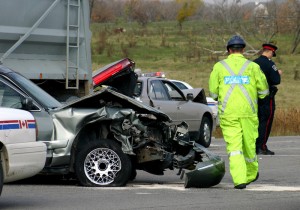There are some interesting parallels between the results of recent workers’ compensation reforms and what the future could hold for Michigan Auto No-Fault Law
 Workers’ compensation was in the news quite a bit last week. NPR, teaming up with ProPublica, conducted an investigation into workers’ compensation systems across the country, delving into how the reforms of the past years have impacted American workers injured on the job. You may (or may not) be surprised to learn that there are some parallels between the way workers’ compensation systems have moved away from their original intent and the potential auto no-fault “reform” that has been the source of speculation and debate here in Michigan almost annually.
Workers’ compensation was in the news quite a bit last week. NPR, teaming up with ProPublica, conducted an investigation into workers’ compensation systems across the country, delving into how the reforms of the past years have impacted American workers injured on the job. You may (or may not) be surprised to learn that there are some parallels between the way workers’ compensation systems have moved away from their original intent and the potential auto no-fault “reform” that has been the source of speculation and debate here in Michigan almost annually.
After reviewing the studies and hearing the stories, one thing seems clear: when employers and insurers fail to live up to their end of the bargain, not only do the injured workers seeking benefits suffer (as well as their families who rely on them for support), but costs are also shifted onto taxpayers when these workers are forced to turn to the government, namely through collecting Social Security Disability benefits, food stamps, and other government benefits, placing even more strain on the system. In the no-fault context, it is entirely possible – likely, even – that reforms will lead to a decrease in the quality of care and access to medical care, medication, and other necessities to assist in the recovery from their injuries, as appears to be the case with workers’ compensation and those who have come to rely on it.
Similarities Between Workers’ Compensation and the Auto No-Fault System in Michigan
The basic premise behind workers’ compensation is similar to that of the Michigan Auto No-Fault system. In exchange for receiving coverage for medical care and expenses related to injuries suffered in the workplace, workers gave up their right to sue their employers for their injuries. As far as our state’s no-fault system, in exchange for receiving lifetime medical care and other related expenses and benefits due to injuries suffered as a result of car accidents, victims can only sue the “at-fault” driver (the person whose negligence caused the accident) under very limited circumstances. Payment for no-fault PIP benefits comes directly from the injured party’s own auto insurer – even if they caused the accident or were somehow at fault (hence, the term “no-fault”).
However, this system, similar to workers’ compensation, has been attacked.Parties that advocated for the dismantling of workers’ compensation (largely insurers, big businesses, and other similarly interested parties) have successfully convinced legislators and many in the general public that rising premium costs, fraud, and other factors relating to claims made due to workplace injuries are placing an undue burden on businesses, such that states with more robust protections for injured workers are seen as less competitive in attracting businesses to their state, and thus stifling job and economic growth.
As a result, businesses are now paying less for coverage than they have been in decades, and insurance companies continue to rake in profits . . . all off the backs of workers potentially facing financial ruin because they cannot work, and yet cannot afford to work, due to their employers and the legislators who voted for these reforms without knowing (or caring) about the true repercussions.
Does this sound familiar? If so, it’s because similar arguments have been made about the no-fault system. Because of (consumer) fraud, over-zealous attorneys, and medical providers trying to game the system, the cost of car insurance is going up for everyone, and that the system is becoming less viable. (However, these claims can’t be fully vetted without access to certain data.) If no-fault reform comes in the form of less access to necessary, quality care, what are insurance companies giving up in return? Is it worth it?
